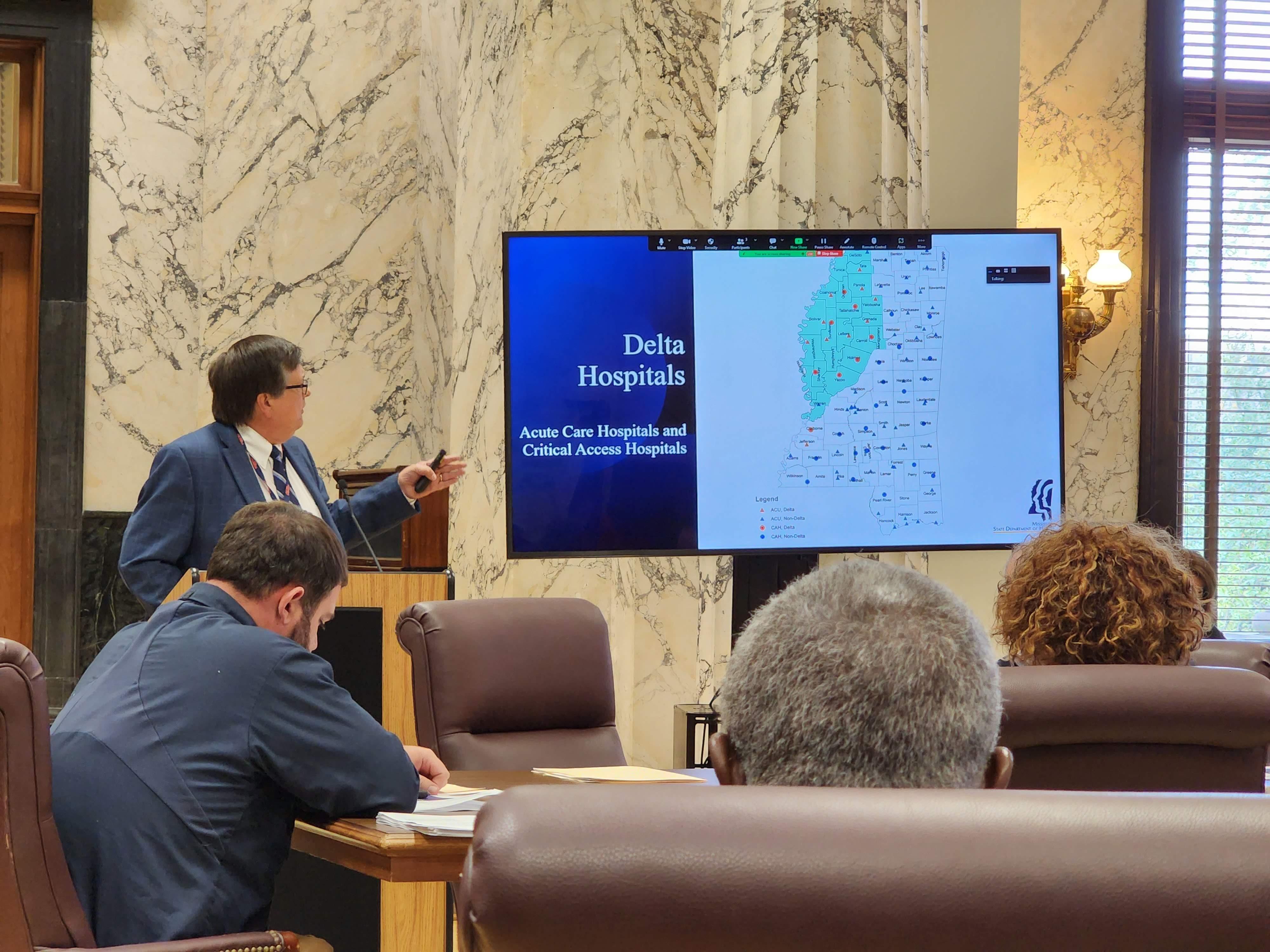Rural hospitals across Mississippi are facing an economic crisis according to healthcare leaders. Lawmakers are asking how the state can help.
Rural Mississippi hospitals are in economic crisis


Rural hospitals across Mississippi are facing an economic crisis according to healthcare leaders. Lawmakers are asking how the state can help.

Kobee Vance
Rural Mississippi hospitals are in economic crisis
More than half of the hospitals in Mississippi are in severe financial distress as revenue streams have failed to grow along with inflation and the rising cost of labor. The costs associated with healthcare, such as staffing, supplies, transportation and food, have increased collectively by 20% in the past decade according to Richard Roberson with the Mississippi Hospital Association. He told lawmakers during a hearing of the Senate Public Health and Welfare Committee that hospitals are in a state of economic crisis.
“Since 2010 we’ve had six hospitals close. Two of them somewhat miraculously over the last year and a half have reopened on a very different basis than they were when they closed, but they have reopened to provide care in those communities,” says Roberson. “And we’ve also had six hospital bankrupcies, some of whom have come through those bankruptcies, others that did not.”
38 of the state’s rural hospitals are being identified by the Mississippi State Department of Health as being at risk of immediate closure or closure within the near term. Health officials say that accounts for half of the state's hospitals.
Senate lawmakers have expressed interest in attempting to extend Medicaid benefits in the upcoming legislative session. Tim Moore, President of the Hospital Association, says Medicaid expansion would certainly help hospitals that are struggling financially in the short term, but it will not be a long-term solution.
“In the last time we went in to see leadership we said that because we didn’t even ask for expansion because it alone will not save our hospitals. It’s gonna be a multitude of approaches,” says Moore. “All of our hospitals function differently. If you pull one lever, it doesn’t actually move the money for them. So there have to be multiple approaches to take care of each of those different types of facilities.”
The State Health Officer says financially strained hospitals that are not forced to close outright will likely have to reduce the types of healthcare services they provide.